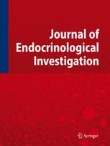
Medicine RSS-Feeds by Alexandros G. Sfakianakis,Anapafseos 5 Agios Nikolaos 72100 Crete Greece,00302841026182,00306932607174,alsfakia@gmail.com
Πληροφορίες
Πέμπτη 26 Μαρτίου 2020
Effects of oral contraceptives on thyroid function and vice versa
Effects of oral contraceptives on thyroid function and vice versa:


Αναρτήθηκε από
Medicine by Alexandros G. Sfakianakis,Anapafseos 5 Agios Nikolaos 72100 Crete Greece,00302841026182,00306932607174,alsfakia@gmail.com,
στις
11:53 μ.μ.

Ετικέτες
00302841026182,
00306932607174,
alsfakia@gmail.com,
Anapafseos 5 Agios Nikolaos 72100 Crete Greece,
Medicine by Alexandros G. Sfakianakis,
Telephone consultation 11855 int 1193
Εγγραφή σε:
Σχόλια ανάρτησης (Atom)
Αρχειοθήκη ιστολογίου
-
►
2023
(366)
- ► Φεβρουαρίου (184)
- ► Ιανουαρίου (182)
-
►
2022
(2814)
- ► Δεκεμβρίου (182)
- ► Σεπτεμβρίου (213)
- ► Φεβρουαρίου (264)
- ► Ιανουαρίου (262)
-
►
2021
(3815)
- ► Δεκεμβρίου (229)
- ► Σεπτεμβρίου (276)
- ► Φεβρουαρίου (64)
-
▼
2020
(5754)
- ► Δεκεμβρίου (401)
- ► Σεπτεμβρίου (365)
-
▼
Μαρτίου
(804)
-
▼
Μαρ 26
(67)
- Screening Children with a Family History of Centra...
- Prognostic impact of elevated lactate levels on mo...
- A Phase 3 Trial of Luspatercept in Patients with T...
- Fostemsavir in Adults with Multidrug-Resistant HIV...
- Whole brain radiation therapy plus focal boost may...
- Analysis of HPV-Positive and HPV-Negative Head and...
- Ionizing Radiation and Complex DNA Damage: Quantif...
- A new approach at diabetic foot treatment: phospho...
- Hyperglycemia and the novel Covid-19 infection: po...
- First-line pembrolizumab in advanced non–small cel...
- Wolfram syndrome (WS) is a rare disorder caused by...
- Immunocyte density in parathyroid carcinoma is cor...
- Effects of oral contraceptives on thyroid function...
- Comparison of outcomes between patients with de‐no...
- Microfluidic Device Simulates Blinking to Study Ey...
- Pandemic Drone to Detect People with Respiratory C...
- Associations between Aquaglyceroporin Gene Polymor...
- Oral Appliances for Snoring and Obstructive Sleep ...
- An unusual presentation of supernumerary teeth in ...
- Study of fixation of a mandibular plate for favour...
- Use of the sublingual gland for reconstruction of ...
- Cerebral white matter microstructural changes in i...
- FDA Approval Summary: Ado-trastuzumab emtansine fo...
- Resistance to First-Line Osimertinib in EGFR-mutan...
- Children with reported penicillin allergy: Public ...
- Our evolving understanding of the pathogenesis and...
- We continue to fail black children with asthma and...
- Reliability of CT Angiography in Cerebral Vasospas...
- Hippocampal Sclerosis Detection with NeuroQuant Co...
- Identification of novel biomarkers, MUC5AC , MUC1 ...
- RFA of primary and metastatic lung tumors: long-te...
- Multi-perspective clustering of obstructive sleep ...
- Prospects for Redifferentiating Agents in the Use ...
- Hyperthyroidism and Dementia
- Incidence and Mortality of Myocardial Infarction a...
- Complement Activation in Association with Markers ...
- Pitanguy Ligamentous Flap: A New Method to Prevent...
- The Role of Staged Cryosurgery and Three-Dimension...
- Hyoid Bone Position and Head Posture in Patients W...
- Efficacy of Low Mandible Maneuver on Mutational Fa...
- Risk assessment of obstructive sleep apnea among g...
- Long-term impacts of tonsillectomy on children's i...
- Evaluation of Spodick's Sign and Other Electrocard...
- Thiotepa hyperpigmentation preceding epiderma...
- Water,
- Pathogens
- Microorga
- International Journal of Molecular Sciences
- International Journal of Environmental Resear...
- Cells, Vo
- Antibioti
- Medicine by Alexandros G. Sfakianakis
-
▼
Μαρ 26
(67)
- ► Φεβρουαρίου (754)
- ► Ιανουαρίου (894)
-
►
2019
(146)
- ► Δεκεμβρίου (19)
- ► Σεπτεμβρίου (54)

Δεν υπάρχουν σχόλια:
Δημοσίευση σχολίου